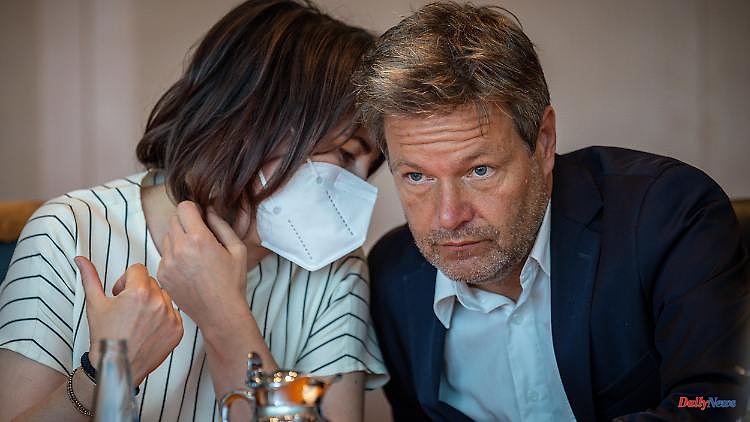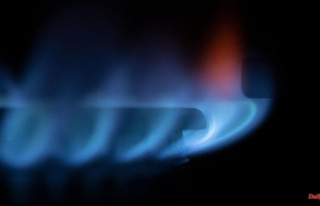It will be tight for the Union at the top: The Greens only have to get one percentage point before they are level with the CDU/CSU. A competition in which the SPD only watches from afar.
Only one percentage point separates the Greens from the Union, which continues to lead the ranking in the Sunday question. It's up 26 percent, like last week, while those chasing it have caught up nine points since the start of the year, in a steady upward move. The SPD has been moving in the opposite direction almost as continuously since March and is currently no longer making the 2nd place in front. The FDP has halved its approval ratings since last November, and is currently slipping - like the left - by one percentage point. The AfD is slightly up.
If there were a federal election now, the parties could expect the following result: CDU/CSU 26 percent (Bundestag election 2021: 24.1 percent), Greens 25 percent (14.8 percent), SPD 18 percent (25.7 percent), AfD 11 percent (10.3 percent), FDP 6 percent (11.5 percent), Left 4 percent (4.9 percent). 10 percent of voters (8.7 percent) would choose other parties. The proportion of non-voters and undecided is 28 percent and thus significantly higher than their proportion in the federal election (23.4 percent).
If they were able to appoint the Federal Chancellor directly and had the choice between incumbent Olaf Scholz from the SPD, the Green Federal Minister of Economics Robert Habeck and CDU leader Friedrich Merz, 26 percent (one percentage point less than in the previous week) of all those eligible to vote would currently vote for Habeck, 22 percent (two points less) for Scholz and unchanged 16 percent for Merz.
If voters could choose between Scholz, Merz and Federal Foreign Minister Annalena Baerbock, 22 percent fewer voters would vote for the Greens than for Habeck. Compared to Baerbock and Merz, 29 percent would choose Scholz and 17 percent would choose Merz. At 58 percent, Baerbock's support among Green Party supporters is significantly lower than Habeck's at 73 percent. The CDU leader gets far less support from his party's supporters than the foreign minister. At 45 percent, less than half of Union supporters would vote for Merz.
The assessment of the political competence of the individual parties continues to put the Greens clearly ahead and has changed minimally compared to the previous week: 20 percent still trust the Greens, 9 percent of the SPD and 10 percent of the Union to have the greatest political competence. 3 percent trust the FDP and 5 percent the other parties with political competence. 53 percent of all eligible voters continue to believe that no party is able to deal with the problems in Germany.
7 percent of all German citizens assume that the economic situation in Germany will improve in the coming years. Significantly more - 77 percent - expect the economic situation to deteriorate, 14 percent expect no change. With 60 percent, the security of the energy supply and the fear of whether the required energy will still be affordable remain the most important issue for German citizens before the war in Ukraine with 57 percent.
Forsa surveyed 2,500 people between August 9 and 15, 2022 for data on party preferences, the chancellor question and the economic outlook. The error tolerance is 2.5 percentage points.
More information about Forsa here.
Forsa surveys commissioned by RTL Germany.












